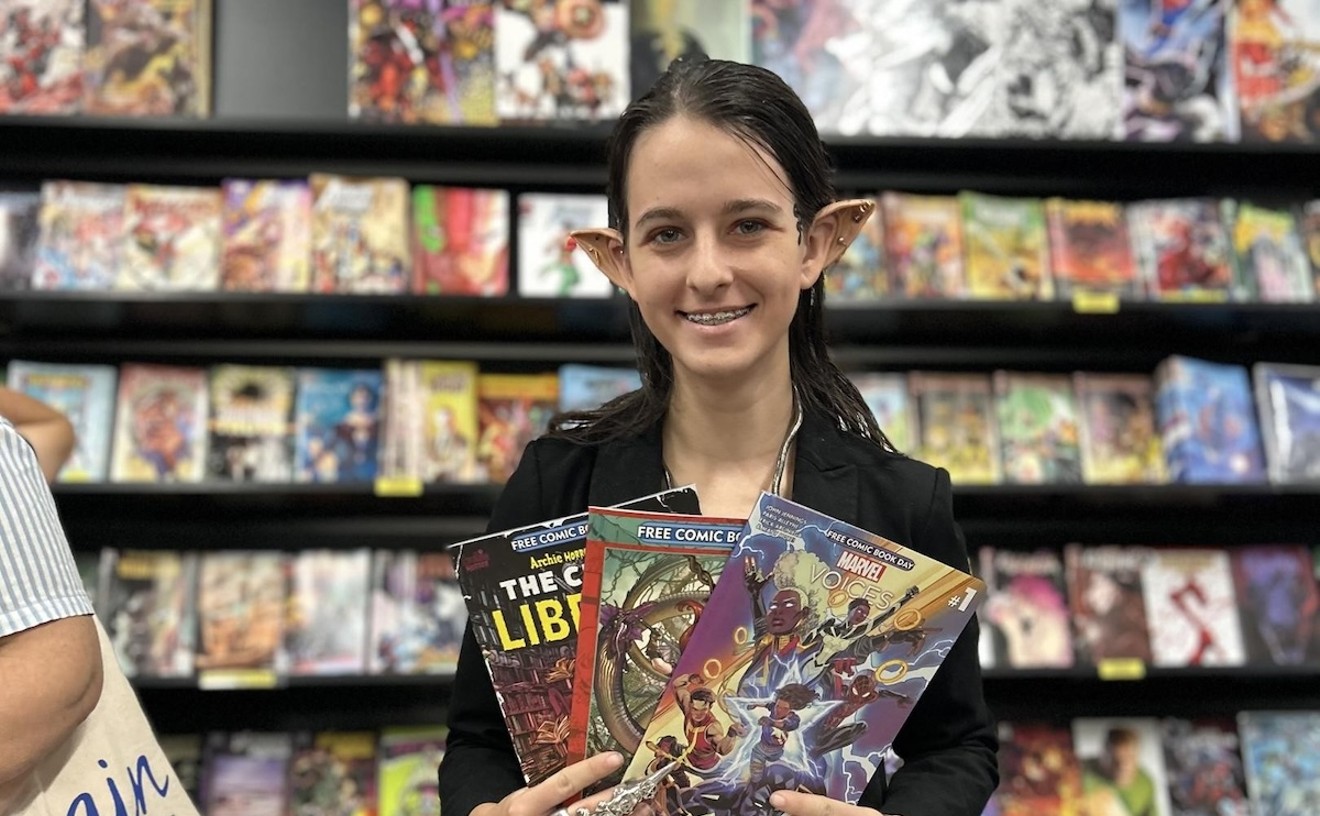The play's first scene finds uptight American pianist Stephen Hoffman (Roy Abramsohn) warily surveying the Old World charm and dusty clutter of room 315 in a Vienna music conservatory. This is clearly not the room -- not even the city -- that the 25-year-old pianist, who comes across as something of a classical music version of the preppy Richard Carpenter, wishes to be in. The renowned teacher with whom he really wants to work lives in Munich and will tutor Stephen only after he spends three months studying vocal accompaniment with down-at-the-heels professor Josef Mashkan (Kurt Knudson).
To make matters worse, things don't go especially well when Stephen and Josef first meet, with the student concluding that the teacher seems as out-of-date as the room's converted gas lamps and old opera posters (Marans sets his play in 1986). Then Josef particularly unnerves the Jewish Stephen by dropping anti-Semitic remarks and asking startling questions about his sex life. Still, Stephen agrees to a trial period with the vocal coach, who politely offers pastries only to charge for them later.
Sitting down at the piano, Stephen throws off quick impersonations of Vladimir Horowitz and other piano greats while confiding to Josef that, although he began playing the works of Tchaikovsky as a four-year-old prodigy, he now worries that his growing reputation as a soloist rests entirely on his technical ability to mimic others. But Stephen soon discovers that he will be singing for the next twelve weeks while Josef plays the piano. "I want you to know, up-front at the first lesson," a disgruntled Stephen tells Josef, "that I won't be happy." To which the unfazed Josef deadpans, "Well, that will make this so much fun."
Josef tries to interest his student in the passion of music and what he terms the "joy and sadness" of life by focusing on Schumann's Dichterliebe (it translates as The Poet's Love); in that piece, the German composer set to music sixteen poems by his countryman Heinrich Heine, helping to fashion a bittersweet tale of a man's reflection on the lost love of his youth. The vocal lessons lurch along comically, with Stephen slicing the air with his arm like a human metronome in a vain attempt to follow the tempo of Josef's erratic playing. At the same time, Josef barks out corrections to Stephen's pronunciation of Heine's lyrics.
Then, frustrated by what he deems irrelevant lessons and angered by his professor's barbs about Jews, Stephen announces his intention to go to Munich, where he plans to visit the famous piano teacher and make a pilgrimage to Dacchau in observance of his heretofore hidden Jewish heritage. Eventually he returns to Vienna energized by a new religious awareness and a determination to discover Josef's wartime past. (Marans sets this fictional action against the real-life backdrop of Austria's then impending presidential election, the one that featured as its primary candidate former United Nations secretary-general and alleged ex-Nazi Kurt Waldheim.) Tellingly, when Josef finally decides to unburden himself of his ghosts and confide in Stephen, Marans obliterates the dialogue with the swelling strains of Schumann.
Structuring his play in two acts (of four scenes each) and a final coda, Marans follows a musical A/B structure, alternating scenes that suggest conciliation with those of disagreement. For example, a giddy Stephen arrives at the conservatory late one night bursting to share the excitement of his first night in an opera house. But then their budding friendship gets derailed almost immediately when Stephen blithely remarks that he's bound for Munich.
In keeping with his musical motif, Marans supports his main theme of the growing understanding between the two men with muted counterpoints that explore a Jew's commitment to his faith, Austria's struggle for a new political identity, and the never-ending contest between the wisdom of age and the impatience of youth. Even in those moments when the two musicians find common ground, their resulting duet remains one in which each retains his own voice; as a result, the script ultimately consists of solo improvisations on loneliness, pride, remorse, and charity. Neither Josef nor Stephen ever breaks down his emotional barriers to tell the other how he feels.
In truth, the most expressive and accessible "character" in Old Wicked Songs is Schumann's Dichterliebe. Building each scene around a section of the song cycle, Marans lets the composer's stirring music and Heine's poems describe the men's inner turmoil. But while Marans's oblique exploration of Stephen's and Josef's emotions may tug at the heartstrings, it never stirs the soul. Leading Stephen in the final moments of the final song, from which the play takes its title, Josef's voice cracks while reciting lyrics that describe the narrator's attempt to bury his past demons; in so doing, he delivers the only dialogue in which he verbalizes his true feelings.
A winner of Houston's Preston Jones New Play Award for his earlier Child Child, Marans has musical roots as a lyricist for Broadway composers Charles Strouse and Galt McDermott, among others. (He also once served as a staff writer for the New Carol Burnett Show and as a script editor for actor Michael Douglas's Stonebridge production company.) Old Wicked Songs started to take off after Abramsohn ran across it at a play-reading series in Los Angeles. He handed it over to director Frank Ferrante -- who directs the Caldwell production -- and the pair collaborated to present its world premiere at Philadelphia's Walnut Street Theatre in 1995. Later that year, with a new director and cast, the show opened at Manhattan's Jewish Repertory Theatre and then moved uptown to off-Broadway's Promenade Theater for a well-received run.
A graduate of Oberlin College's Conservatory of Music, Abramsohn proves he can spot a work that shows off his musical talents -- but he is far more than just a musician who acts. Whether sinking into the couch while awkwardly searching for a polite way to contradict his elder or reeling around the stage astounded by having learned something he didn't already know, Abramsohn is totally believable as the isolated piano prodigy. He invests his character with a universal vulnerability that softens the cold genius's moods and engages us in his story.
As Josef, Knudson completely embodies the knowledgeable curmudgeon -- the type of person from whom we all can learn if only we could stand to be in the same room with him. An understated actor who creates a huge impact, Knudson portrays the perfect mentor, a man who cajoles, rebukes, and confounds in an effort to teach a student to think for himself. Knudson deftly depicts how Josef's desperate need for a paying gig outweighs his pride, creating a moving portrait of someone struggling to keep his dignity intact.
To his credit, director Ferrante, like a conductor, allows his players to follow the rhythm of Marans's work. And the Caldwell's first-rate design team provides expert accompaniment: Penny Koleos Williams's costumes underscore Stephen's progressive liberalization; Thomas Salzman's sensitive lighting supports the proceedings with an unobtrusive power; Tim Bennett's sturdy rehearsal hall looks authentic; and Steve Shapiro's cohesive sound design imperceptibly blends live piano from the stage with taped music. Despite its classical music underpinnings, Old Wicked Songs is closer in spirit to jazz, offering the delights of breathtaking performances within a defined but never explicit structure.
Old Wicked Songs. Written by Jon Marans; directed by Frank Ferrante; with Kurt Knudson and Roy Abramsohn. Through December 21. For more information call 930-6400 or see "Calendar Listings.










